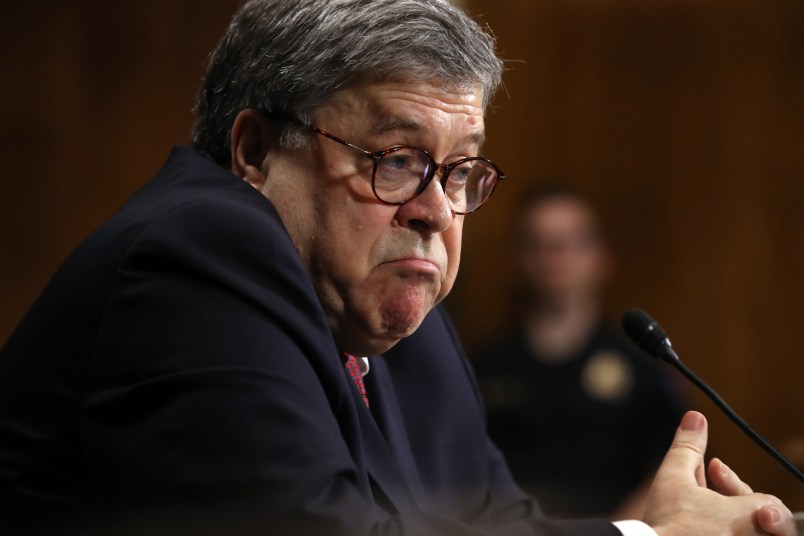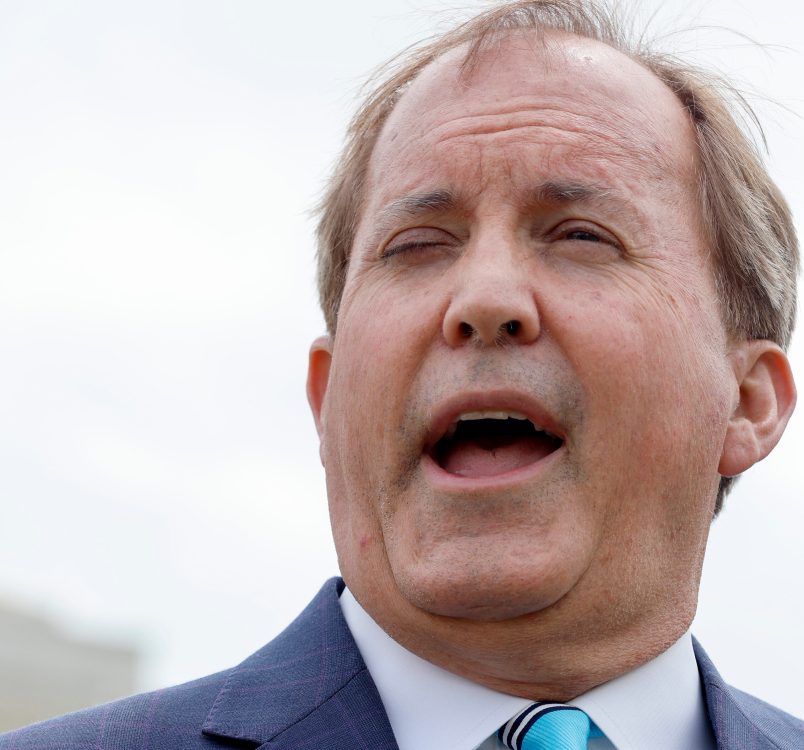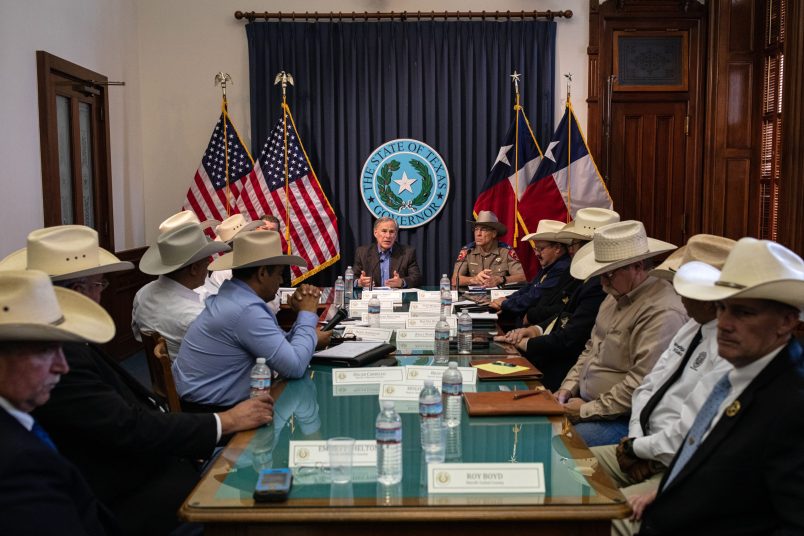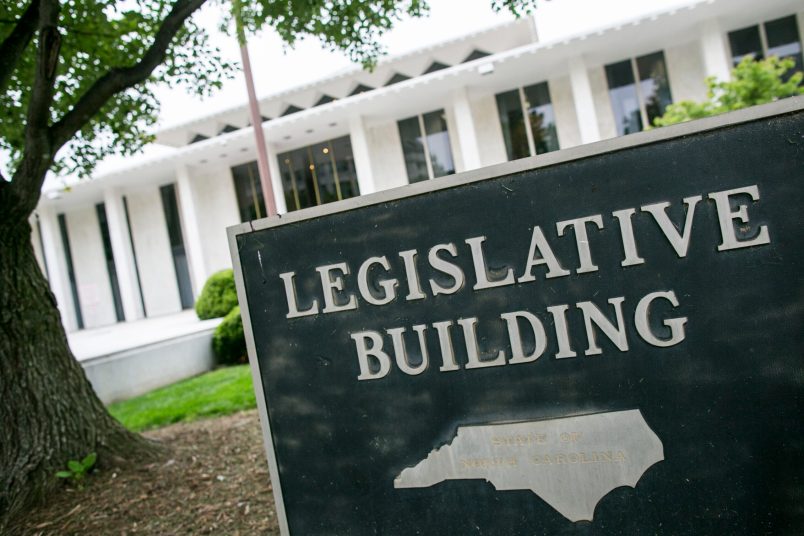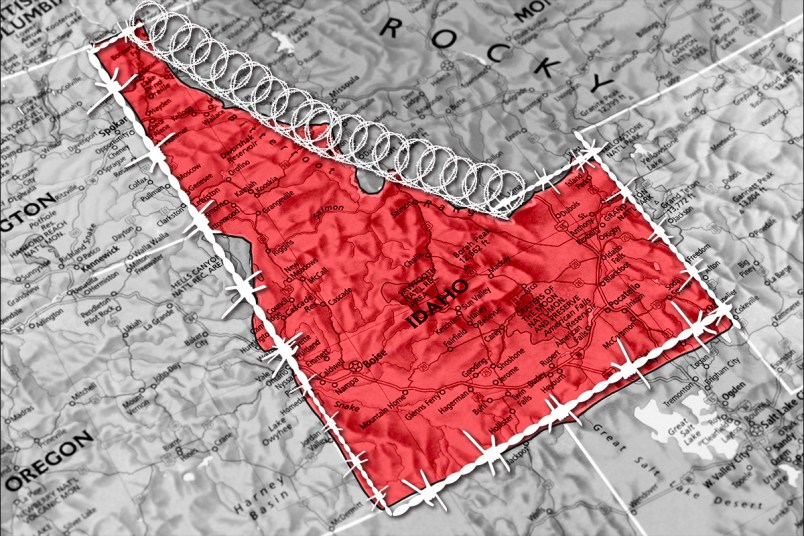By now, it’s pretty clear that Attorney General Bill Barr thinks there was nothing unusual — let alone potentially criminal — about President Trump’s intervention in the federal Russia investigation. Not the repeated pushes to fire special counsel Robert Mueller, not the public fuming about being the innocent victim of a federal “witch hunt,” not the tweeted threats to the family of his former personal attorney.
Trump was just upset that he was a target of an investigation he felt to be “unfair,” Barr said again during a Wednesday hearing before the Senate Judiciary Committee.
But Barr also offered some new creative justifications of Trump’s conduct — one of which was so far-fetched that it prompted laughter in the hearing room.
Here are the instances that stuck out to us.
Trump didn’t have a “corrupt motive”; he was just frustrated by Mueller’s conflicts!
In Barr’s understanding, Trump only ordered his White House Counsel Don McGahn to fire Mueller because he was concerned about Mueller’s supposed conflicts of interests.
“If the President is being falsely accused — and the evidence now suggests that the accusations against him were false — and he knew they were false, and he felt that this investigation was unfair, propelled by his political opponents, and was hampering his ability to govern, that is not a corrupt motive for replacing an independent counsel,” Barr testified.
McGahn told Mueller that the conflicts Trump cited were “silly” and “not real.” They include the lifelong Republican ex-FBI director’s efforts to get reimbursed from Trump’s Virginia golf club after cancelling his membership over a decade ago. Other supposed conflicts: several members of Mueller’s large team had donated to Democratic politicians.
Trump has the “constitutional authority” to end probes he thinks are bogus
Barr expanded on this theory in a later round of questioning, when Sen. Patrick Leahy (D-VT) asked about Trump’s possible motives for obstruction.
Barr admitted that Trump could have such motives even if there was no “underlying crime” i.e. that Mueller did not prove that Trump’s campaign expressly violated the law by conspiring with Russia. But then he said it was within Trump’s “constitutional authority” to handle the probe as he saw fit.
“In this situation with the President who has constitutional authority to supervise proceedings, if, in fact, a proceeding was not well-founded, if it was a groundless proceeding, or based on false allegations, the President does not have to sit there constitutionally and allow it to run its course,” Barr said.
“The President could terminate that proceeding and it would not be a corrupt intent because he was being falsely accused,” Barr continued. “And he would be worried about the impact on his administration. That is important because most of the obstruction claims that are being made here, or episodes, do involve the exercise of the President’s constitutional authority and we now know that he was being falsely accused.”
The McGahn incidents were just about spinning the press
Barr was questioned repeatedly about Trump’s orders that McGahn fire Mueller in June 2017, then lie about the incident some six months later — even creating a false White House record denying the whole thing ever happened.
Barr testified that Trump could have genuinely believed that the press, led by the New York Times, misreported this story and that he simply wanted McGahn to correct the record.
“There is evidence that the President actually thought and believed that the Times article was wrong,” Barr said. “That is evidence on the P resident’s side of the ledger that he actually thought it was wrong and was asking for its correction. It is also possible, the report says, that the President’s intent was directed at the publicity and the press. The government has to prove things beyond a reasonable doubt.”
Discouraging flipping isn’t obstruction
When Trump discouraged his associates from cooperating with the federal government, he was probably just trying to make sure they didn’t lie to get a better deal, Barr said.
Trump’s many tweets, public comments and private exhortations to Michael Cohen, Roger Stone, Michael Flynn, Paul Manafort and others to remain “strong” and not “flip” were “not obstruction,” Barr said.
“The evidence, I think what the President’s lawyers would say, is that the President’s statements about flipping are quite clear and express and uniformly the same which is, by flipping he meant succumbing to pressure on unrelated cases to lie and compose in order to get lenient treatment,” Barr testified. “That is not — it’s a discouraging flipping in that sense, it’s not obstruction.”
TPM’s Tierney Sneed reported that this rhetorical backflipping prompted laughter in the hearing room.
Barr still doesn’t get Mueller’s reasoning on obstruction
After pouring over the 488-page report, overseeing its redaction, and repeatedly offering his public assessment of it, Barr said Wednesday that he still doesn’t quite get what Mueller had to say about the Trump obstruction question.
Asked by Sen. John Kennedy (R-LA) why Mueller didn’t reach a conclusion on this topic, Barr said he “really couldn’t recapitulate it.”
“The deputy was with me, the principle associate deputy,” Barr said, describing a March 5 meeting with Mueller to discuss the final report. “We didn’t really get a clear understanding of the reasoning. And the report, I’m not sure exactly what the full line of reasoning is and that’s one of the reasons I didn’t want to try to put words in Bob Mueller’s mouth.”
Mueller relays in the report that he adhered to Justice Department policy that a sitting president can’t be indicted, in part because they are unable to defend themselves in court. The special counsel expressly said that he would have exonerated Trump on this issue if he could, but could not. He laid out multiple reasons why Trump would want to obstruct this particular investigation, including the fear that Mueller would discover evidence of a crime.
As it happens, former Trump attorney Michael Cohen is headed to jail this week in part for a hush money scheme that the President orchestrated to pay off women who claimed during the 2016 campaign to have carried out affairs with Trump. That case was spun off from Mueller’s investigation.


